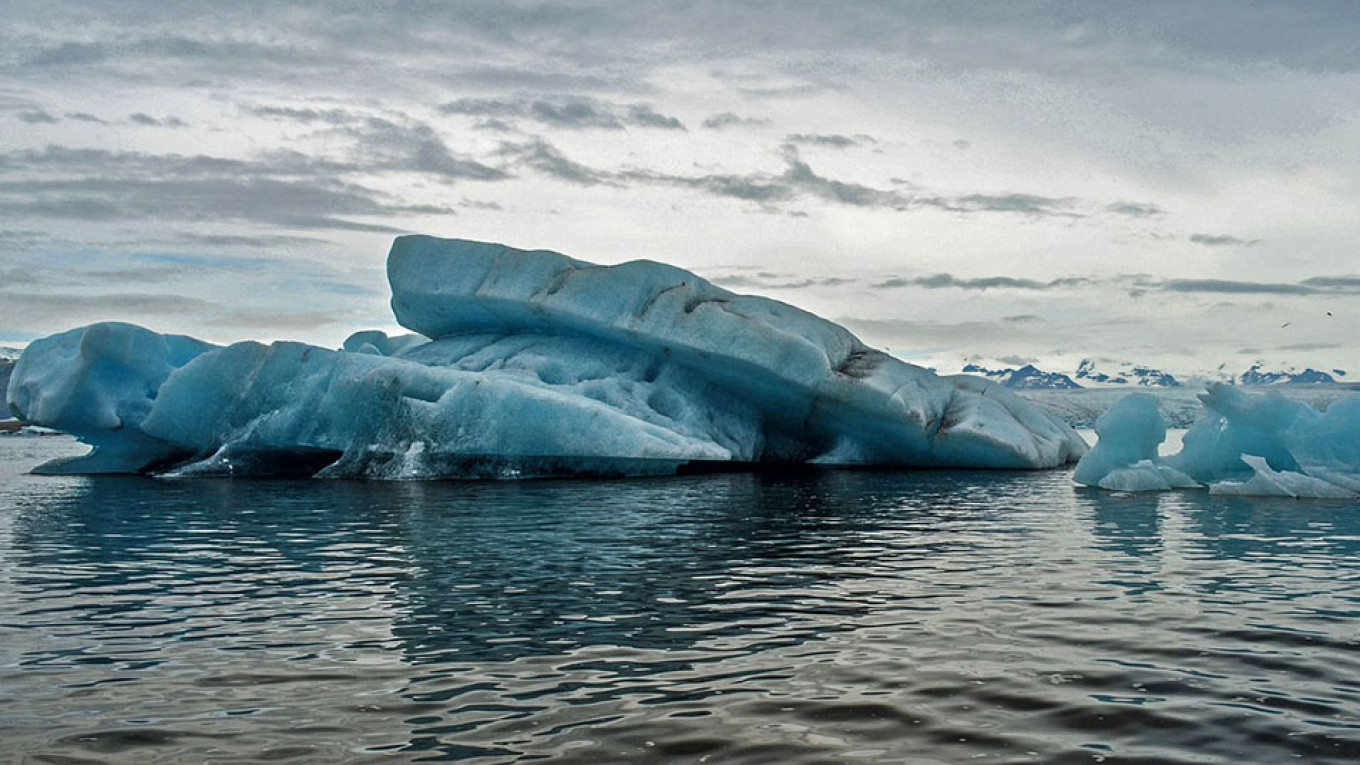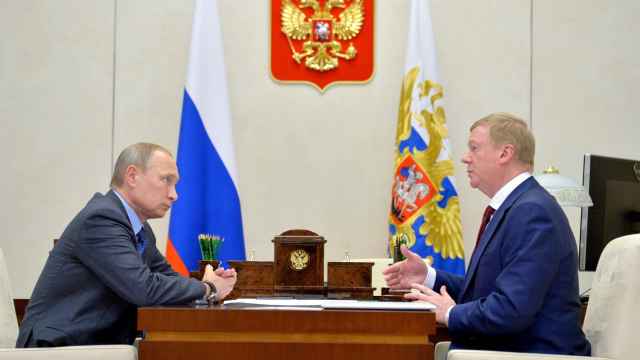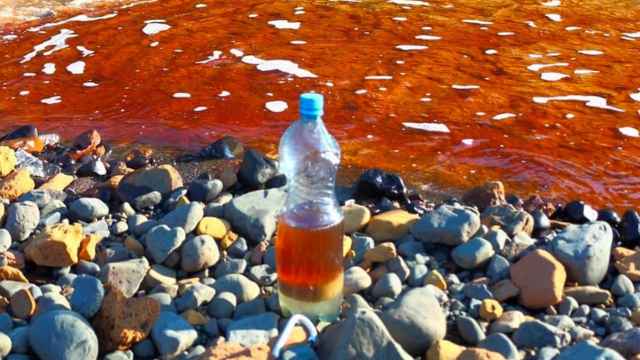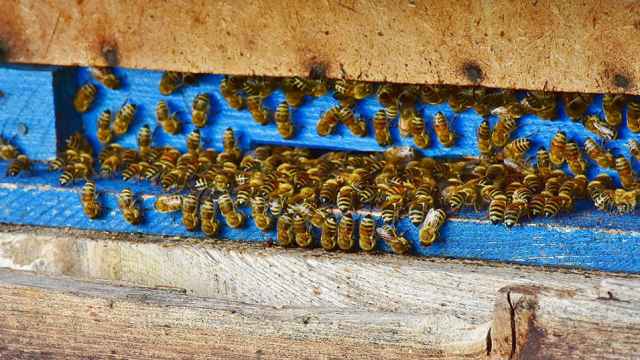For most of his two decades in power, Vladimir Putin has challenged the assertion, now held by the vast majority of climate scientists, that global warming is due almost exclusively to human activity.
As late as 2017, long after agreeing in principle to the Paris pact on curbing carbon emissions, the president of Russia was asserting that the current warming trend actually started before the 1930s, when “anthropological factors” were negligible.
“The issue is not stopping it because that’s impossible, since it could be tied to some global cycles on Earth or of planetary significance,” Putin said after touring a military outpost in the Arctic, where melting ice continues to open up lucrative new shipping routes. “The issue is to somehow adapt to it.”
Fast-forward 27 months and Putin, who presides over the world’s fourth-largest emitter, is trying to position himself as a leader of the same transnational regulatory movement that his first economic adviser compared to fascism. After three and half years of foot-dragging, Putin has finally decided to ratify the 2015 Paris Agreement — and the reasons have less to do with the fate of the planet than with geopolitics and gross domestic product.
What’s more, Putin wants to neutralize domestic critics by ratifying the landmark accord via government order instead of through a vote in parliament as originally planned, according to two people familiar with the matter. Ratification may coincide with the UN Climate Action Summit in New York on Monday, these people said.
Bypassing the State Duma would prevent lawmakers allied with opponents of the Paris process, including energy and metals barons, from challenging the Kremlin’s position in public hearings, they said. That means Putin wants to stop members of the lower house from voicing the same kinds of arguments against the need for collective action that he himself has frequently expounded.
Officials involved in discussions inside the Kremlin point to a myriad of factors behind the evolution of Putin’s position on greenhouse gases over the past two years. These include intense personal lobbying by European leaders, particularly from Germany, France and Scandinavian countries, and a deeper understanding of the costs of doing nothing.
They said Putin’s policy pivot was driven by the cold calculus of economics and realpolitik rather than any real conviction in the efficacy of further crimping personal and corporate behavior. In fact, when asked if embracing the Paris pact means Putin now agrees with the scientific consensus on the primary cause of planetary heating, his spokesman was unusually blunt:
“No,” Dmitry Peskov said by text message.
That gives Putin another point of commonality with Donald Trump, his U.S. counterpart. Trump, who’s called global warming a hoax, was the first head of state of a full Paris Agreement member to announce intentions to withdraw, arguing that it’s bad for business. Putin even defended Trump’s decision in 2017, saying then that it was nothing to “worry” about.
But while Trump may think the U.S. can afford to go it alone on climate change, Putin knows that Russia, which is already somewhat isolated financially as a result of Western sanctions, cannot.
Taxes, protests
Governments everywhere are raising environmental standards to promote green trade and it won’t be long before Russian exports are taxed out of markets if it doesn’t follow suit, according to the Russian Union of Industrialists and Entrepreneurs, or RSPP, the country’s biggest lobby group. The RSPP dropped its opposition to the Paris pact in January, under pressure from the Kremlin.
“The absence of national obligations and state regulation of activities to combat climate change may serve as a pretext for imposing economic restrictions on Russian companies,” RSPP chief Alexander Shokhin, a former deputy premier who also sits on the supreme council of Putin’s United Russia party, said in an open letter at the time.
Indeed, on Friday, Chancellor Angela Merkel’s ruling coalition in Germany, a key trading partner for Russia, approved sweeping measures to fight climate change that include new penalties on some emissions of carbon dioxide. That same day, in cities around the world, thousands of young people took to the streets to protest what they view as climate inaction.
In Russia, Putin, far from being a global-warming denier, has been using recent research by his own scientists to make the case that the world’s largest country is actually also the largest victim of the phenomenon, whatever the cause.
Putin summarized his new line of thinking in a major speech at an international conference on industrialization this summer in Yekaterinburg in the Urals, the range that separates Europe and Asia. At the time, large swathes of Russia, which has about 17% of all livable land, were being ravaged by an unusual series of deadly and massive fires and floods.
With temperatures in Russia rising 2.5 times the global average, Putin said, the government must do whatever it can to mitigate the impact, including curbing the country’s carbon footprint. That’s not a popular idea among business owners in Russia’s most pollutive region, so Putin caged his call to action inside criticisms of unidentified Western leaders who he said continue to cynically distort the issue for political and economic gain.
Populism, obscurantism
“The degradation of nature and the climate continues and is increasingly stronger manifested in droughts, crop failures and natural calamities,” the Russian leader said. “Regrettably, instead of discussing the gist of the climatic and environmental agenda, we often see overt populism, false allegations and, I dare say, obscurantism.”
Putin, 66, used to joke about rising temperatures being good for minks and sables, but he’s not laughing anymore.
The problems associated with thawing permafrost alone are daunting. More than two-thirds of Russia, an area bigger than the U.S., is covered by permanently frozen ground. At current rates, the Russian Academy of Sciences expects this region to shrink by 25% by 2080, threatening $250 billion worth of apartment blocks, roads, railways, pipelines and other infrastructure.
Keeping ground frozen is already a mini-industry in Arctic cities like Norilsk, home to Russia’s most valuable mining company. And retreating glaciers on Novaya Zemlya, an archipelago between the Barents and Kara seas, are releasing fallout from dozens of nuclear tests that the Soviets conducted on and above the islands, including the 1961 Tsar Bomba, the most destructive device ever exploded.
Still, time is on Putin’s side under the terms of Russia’s commitment to the Paris Agreement, which uses 1990 as the reference year for measuring changes.
That was the year before the Soviet Union disbanded, triggering one of the most devastating economic collapses in modern history. Compared to 1990, Russia has cut greenhouse gases by about 25%, a reduction no other major country comes close to matching.
Under the Paris framework, Russia is pledging to limit emissions to 70% to 75% of baseline levels by 2030. And it has until the end of 2020 to present its new long-term strategy for achieving that goal, according to Ruslan Edelgeriev, Putin’s senior adviser on climate change.
“We have to take account for the fact that the Russian economy is in large part built around carbon-intensive industries,” Edelgeriev said in response to emailed questions sent by Bloomberg. “Russia needs to become a leader not just in the export of fossil fuels, but also in the export of new technologies and clean energy.”
Unlike the Kyoto Protocol, which was legally binding, the Paris accord is voluntary, relying on market mechanisms and the good will of signatories to achieve the ultimate aim of limiting worldwide warming to 2 degrees Celsius above pre-industrial levels this century. Each country’s progress will only be assessed every five years.
If every nation had the same emission rules that Russian currently has, global warming may exceed 4 degrees in the period, according to Climate Action Tracker. The research group, which is partly funded by the German government, ranks Russia’s preparedness to meet the Paris objectives “critically insufficient” alongside just four other countries — the U.S., Saudi Arabia, Turkey and Ukraine.
“What the Russians are doing is a paradox,” Vladimir Chuprov, head of the energy unit at Greenpeace in Moscow. “On the one hand, they understand that adaptation is needed, but on the other hand they are opening new oil and gas fields. It’s suicidal.”
Coal boom
Russia is also cranking up production of coal. With Germany and other European countries slashing their consumption of the dirtiest of the major fossil fuels, Russian coal companies are “conquering the Asia-Pacific region,” Energy Minister Alexander Novak told Putin in the Kremlin last month.
That’s why activists aren’t rushing to celebrate Russia’s looming ratification of the Paris Agreement — it’s far from clear what, if anything, the country will actually do, according to Angelina Davydova, director of the St. Petersburg-based Office of Environmental Information.
“But at least now Putin is talking about the risks to Russia, not the benefits,” she said.
This article was originally published on Bloomberg.
A Message from The Moscow Times:
Dear readers,
We are facing unprecedented challenges. Russia's Prosecutor General's Office has designated The Moscow Times as an "undesirable" organization, criminalizing our work and putting our staff at risk of prosecution. This follows our earlier unjust labeling as a "foreign agent."
These actions are direct attempts to silence independent journalism in Russia. The authorities claim our work "discredits the decisions of the Russian leadership." We see things differently: we strive to provide accurate, unbiased reporting on Russia.
We, the journalists of The Moscow Times, refuse to be silenced. But to continue our work, we need your help.
Your support, no matter how small, makes a world of difference. If you can, please support us monthly starting from just $2. It's quick to set up, and every contribution makes a significant impact.
By supporting The Moscow Times, you're defending open, independent journalism in the face of repression. Thank you for standing with us.
Remind me later.






